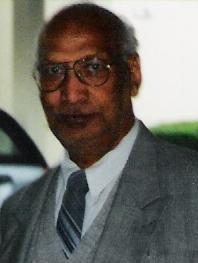DR. B. R. AMBEDKAR - HIS RELEVANCE TODAY

Khushi Ram
The attitude of the so-called
followers of Dr. Ambedkar recalls the rebuke Christ administered to his
followers: “You call me ‘Lord’ ‘Lord’ but never carryout what I say.” To have
easy and cheap leadership they claim to be Ambedkarites but do not observe any
item of the work-a-day philosophy of that great leader.
Why do we celebrate Dr. Ambedkar’s
birthday or his conversion to Buddhism? Most of us believe that it is a matter
of earning merit points (virtue) just like the followers of other religions do
when they celebrate the anniversaries of their gurus etc. This is a big
mistake. The real purpose of celebrating any occasion connected with that great
leader should be to emulate him, especially our confirmation of his philosophy
of life. Mostly the speakers mention the following achievements of Dr.
Ambedkar: (a) The Constitution of India, (b). His Political party viz the RPI,
(c). Reservation in government services and legislatures, (d). His blameless life
and high ideals of secularism, equality, liberty and social justice etc.
With regard to the first it may be
stated that Constitution has been amended more that hundred times and may even
be replaced. Does it mean that the Dr. Ambedkar will lose his importance for
us? The political party setup by him is in shambles. Reservations have
benefited the Dalits a lot but will not be there for ever. Does it mean that
the future generations who may have no benefits of reservations should be right
in forgetting the great leader? Even to boast of the exemplary life and ideals
of Dr. Ambedkar is like children bragging about the achievements of their
parents without having any personal merit of their own.
In our view we should cherish the
memory of our emancipator because he gave us a valid philosophy of life and
discovered for us a religion viz Buddhism of which we can be proud as our own
cultural heritage, get rid of the dehumanizing Hindu Social and religious
system and through which we can join other Buddhist societies of the world.
Dr.Ambedkar was a great
economist, a political thinker, a social reformer and above all a religious
philosopher. He wrote more than fifty books and pamphlets, most of them being
of topical interest. His two books of most lasting value are ‘Annihilation of
Caste’ and ‘The Buddha and His Dhamma’. The first one gives an analysis of
Caste System, our greatest social scourge which is the single most important
reason of the exploitation of the Dalits and their dispiritedness and also
prescribes a way out for us. It is a classical thesis on
social/political/economic stratification and racism practiced by the Higher
Castes of Hindu Society towards the untouchables and the Aborigines of India.
It creates abhorrence in our mind for the Hindu values of life and exhorts us
to find an alternative philosophy of life and a separate social system. The
second book meets the above requirements and gives us Buddhism as a way of life
in place of Hinduism. This book describes what the Buddha actually taught and
not what ideas were attributed to him later on.
More non-Dalit writers are writing on
Dr. Ambedkar and his philosophy than the Dalits and he is being remembered as a
leader of new India
more than any other leader of his time. In India
a large number of Buddha Viharas and Ambedkar Bhawans are coming up. The Dalits
are realizing that Buddhism can unite them on all IndiaPanchsheel) and the Eightfold Path to
avoid the extremes of thought and behaviour are unexceptionable. This is the
reason why Buddhism is becoming more and more popular all over the world. The
Buddha is considered to be the most ancient and systematic philosopher of
humanism because his philosophy is independent of the ideas of God and Soul.
basis and they can benefit by associating with other Buddhist nations in the
International field. For the intellectuals the Buddhist ‘theory of
Impermanence’ and ‘Law of Causality’ are at par with the theory of evolutionary
naturalism of the Western world.
The Buddha’s Five Principles of good conduct (It may be difficult for the poor Dalits
of India to advance rapidly towards Buddhism; they are under great cultural and
economic pressure of the Higher Castes and are unable to standup for personal
dignity and cultural autonomy. But what stands in the way of Dalits living in
foreign countries adopting Buddhism as their religious and personal philosophy.
They seem to be victims of tradition of their illiterate forefathers or they
seek quick leadership within the social limits of their castes. Why don’t they
examine as to what cultural heritage they are passing on to their children in
free countries like Canada?
Why are they forcing their children to remain in the Hindu/Sikh fold only to be
called Chuhra – Chamar even in
foreign countries? If you declare yourself to be a Sikh or a Hindu, the
immediate reaction is: which caste? If you say I am a Buddhist there will be no
more question and you will be considered as a very reasonable and compassionate
person. Choice is yours; think for yourself.
|